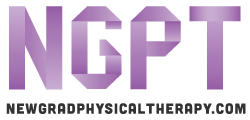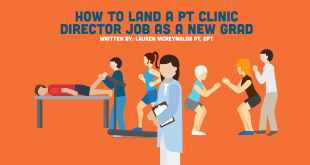Why is a Physical Therapy Mentor Important?
First, this article came about because of a mentorship resource Mark Kev created. It is a sign up for PT’s who would like to be mentor’s, and students who would like to learn from a mentor. What follows are the opinion’s of both mentor’s and students.
A Student’s Perspective – Mark Kev, SPT
“The expert at anything was once a beginner” – Rutherford B. Hayes
My first clinical affiliation was in the outpatient orthopedic setting after my second year, which consisted of all of the musculoskeletal classes in our program. After my first clinical experience, I realized that I didn’t know everything musculoskeletal. I was deeply humbled and learned a thing or two about myself (Read more about Mark’s reflection on his first clinical affiliation). Despite what you learn in school, physical therapy in the clinic is rarely textbook. At times, I felt so lost that I did not know what to do. There were so many questions that ran through my head. That’s where my clinical instructor came in. She helped me out so much, both intellectually and emotionally. In a sense, she mentored me like any good clinical instructor should. She was my clinical instructor at the beginning, but by the end, I gained not only a mentor, but a friend.
Mentors allow you to bounce ideas around together, collaborating and working as a team. Mentorship fosters an environment of excellence; both the mentor and the mentee wish to learn from each other. Both parties are held accountable to reach their full potential. Most importantly, the patient reaps the benefits of our mentorship, by receiving the best care they can get.
A Student’s Perspective – Chloe Moreno, SPT
I do not think that we can truly succeed by ourselves. We need to learn from others, especially those who inspire us. Throughout my academic career, I was fortunate enough to learn from many mentors. The experience helped me gain many opportunities and receive guidance as I grew throughout college. A mentor can help you find opportunities, such as research, scholarships, and various programs that will enhance your learning experience. They are a great resource to go to if you need a recommendation letter for something that you are applying for, as well. They often can write the strongest letters of recommendation since they get to know you very well.
I still keep in contact with all of my mentors on a constant basis because they have influenced me so much. Many of them taught me how to be a great professional and to love what I do. I strive everyday to make them proud, because they invested so much time in my growth as a professional. I am extremely grateful to have had mentors in my life and encourage everyone to do so. How do you find a mentor? Just start a conversation with someone who inspires you or who has reached out to help you!
A PT’s Perspective – Brett Kestenbaum, PT, DPT
“We make a living by what we get, but we make a life by what we give.” – Winston Churchill
Finding a great mentor is like finding a star power-up in Super Mario Brothers: it provides you with the opportunity to accelerate towards your goals faster, while overcoming obstacles with ease. During my years in physical therapy school, my professors did an incredible job arming me with the knowledge I would need to become a proficient physical therapist. I soon realized though, that when I graduate, not only would I be a PT, but life would also start happening as well. I was not as prepared for life as I was prepared to be a physical therapist.
While I was in school, I had an “unofficial mentor” who provided me with life and career guidance, describing to me the real world experience I would have and the challenges I would face when I finished school. The guidance he provided helped me understand that I needed to know more about finance, human relationships, career success and choices, and many other subjects not covered in school. So, I took his advice and felt much more prepared for life when I finished school. The point is not to become an expert – but to gain an initial understanding of what life may bring so you are prepared to achieve the results you are looking for.
A PT’s Perspective – Rich Severin PT, DPT, CCS
“To be the best one must train with the best.”
Throughout my life thus far, I have been quite fortunate to have had many exceptional people who have imparted their knowledge and wisdom upon me. The benefits of these relationships are particularly true with respect to my career as a physical therapist. At each stage of the journey, there has been a different person who has played a significant role in my development as a clinician, researcher and educator. I have been even more fortunate that many of these people are leaders in their field, yet exceptionally humble. Some were more formal in nature such as clinical instructors, residency preceptors and my current PhD mentor here at UIC. Some were less formal, such as professors who may have only taught me for a semester who piqued my interest in an area of practice or research and made themselves available to provide guidance. Both types were equally as important to my overall development as a professional. Without their willingness to have discussions surrounding my unending amount of questions, and provision of counsel on important decisions, I would not be the person, let alone the clinician, that I am today.
Having a good mentor-apprentice relationship is critical for the development of excellence, in any field study. For those who desire to attain excellence, I implore you to seek opportunities to obtain one. Residencies or fellowships are excellent options but not necessary.
New grad PTs should always have some sort of mentorship. Don’t forget to ask your employer about mentorship opportunities at your new job!
 NewGradPhysicalTherapy.com The Largest Online Resource For New Grad Physical Therapists
NewGradPhysicalTherapy.com The Largest Online Resource For New Grad Physical Therapists







